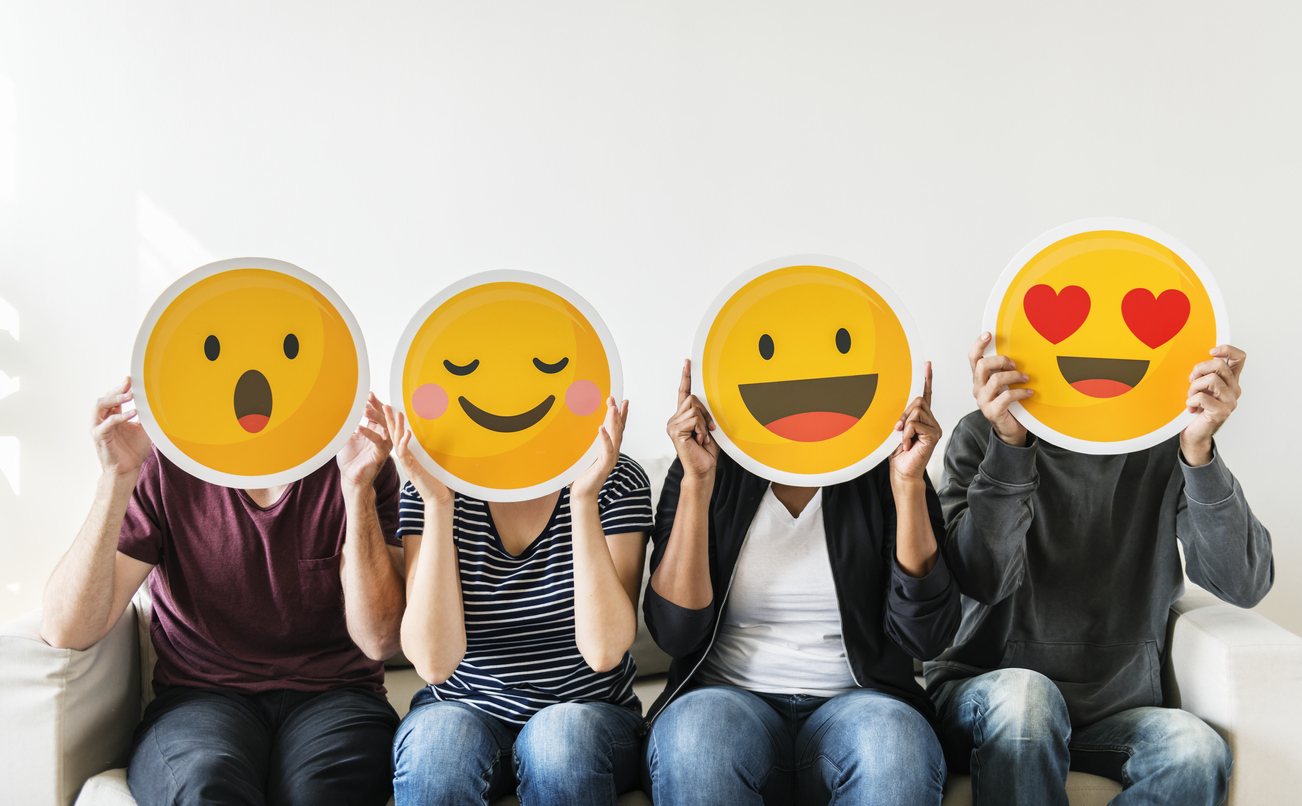If You Text With These, People Think You’re Cold, Study Says

For a communication method that’s supposed to make life simpler, texting still has plenty of shortfalls. And whether it’s dealing with an embarrassing autocorrect accident or trying to choose the right number of exclamation points to get your point across, putting your thoughts and feelings into words can leave a lot more up to the interpretation of whoever receives it. Of course, this also includes how you use emojis. A new study from the University of Ottawa found that using negative emojis in your text messages can lead people to see you as cold. Read on to see why it might be a good idea to avoid sending that angry cat face, and for more ill-advised e-communication, This Is the Most Annoying Text You’re Sending All the Time.
Read the original article on Best Life.
Using negative emojis can give people a negative perception of you.

To conduct the research, 38 volunteer participants read messages with a negative, neutral, or positive sentence paired with a negative, natural, or positive emoji while having their eye movements monitored. The subjects were then asked to rate each message and how warm they viewed the person sending them. Results showed that even when a message was positive, the sender was often still viewed as a “downer” if they coupled it with a negative emoji.
“Emojis are consequential and have an impact on the interpretation of the sender by the receiver and if you display any form of negativity—even pairing a positive emoji with a negative message—it is going to be interpreted negatively,” said study author Isabelle Boutet, PhD, a professor in psychology in the Faculty of Social Sciences at the University of Ottawa, in a statement. “You are going to be perceived as a person who is cold, and you will come across as in a negative mood when using negative emojis, regardless of the tone.”
Emojis may simply be acting as a replacement for face-to-face chats.

Boutet’s research, which focuses on social cues conveyed by faces, argues that this digitized version of communication may be taking the place of traditional conversations. “People often try to control the emotion they convey with their faces to avoid social conflict. Yet people use emojis for fun without giving it much thought when, in fact, they have a strong impact on interpersonal interactions,” Boulet said, adding that children who are more likely to communicate by text stand to lose the traditional input of face-to-face communication.
As a result, new emojis may be developed that are less confusing.

The researchers conclude that while some popular references to the symbols can become widely accepted and used over time, the full lexicon of images is still too confusing for many to use accurately. “There are a lot of emojis and many we don’t even know what they mean, and people can easily misinterpret them,” Boutet said. “We are looking at developing new emojis that convey emotions in a more consistent and accurate manner, that better mimic facial expressions of emotions and reduce the lexicon of emojis, which could be especially helpful to less tech-savvy older adults.”
Your sarcastic comments are probably also being misunderstood.

Boutet emphasized that the findings show what seems like an innocent addition to your message should have much larger implications, simply because the icons can leave much to the imagination. “You should not think that emojis are a cute little thing that you add in a text message and that it has no consequence on your interaction. Emojis have large consequences and a strong impact on how your text message will be interpreted and how you will be perceived,” they said.
But it wasn’t just the warmth of the person that could get muddled by using the wrong type of smiley face icon. The study also found that other intended messages often went missed depending on how people read the text. “We also found certain types of messages were more difficult to convey; people have a lot of problems interpreting messages that are meant to convey irony or sarcasm,” Boutet said. And for more on business who might want to communicate better, check out This Online Store Has the Worst Customer Service in America.